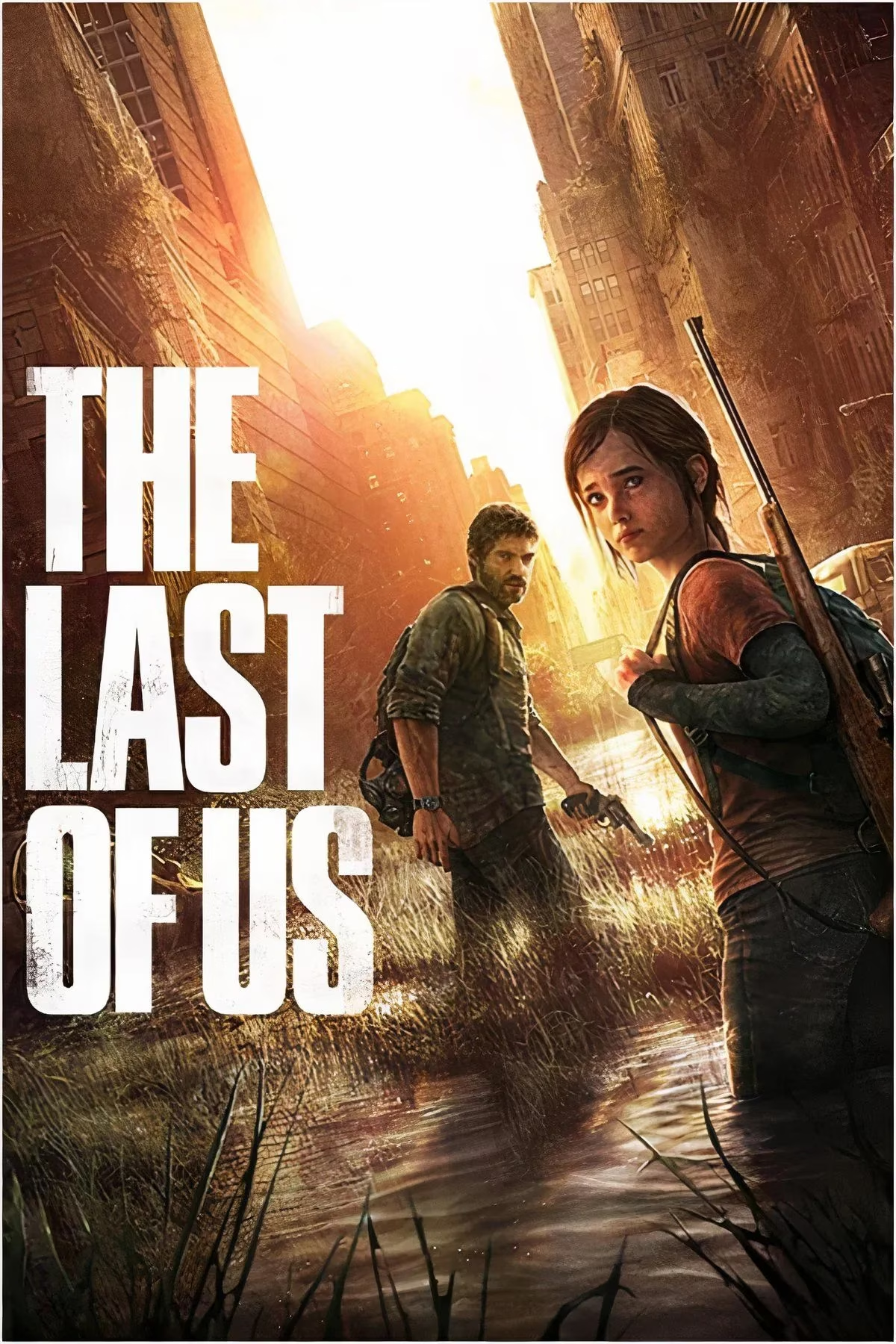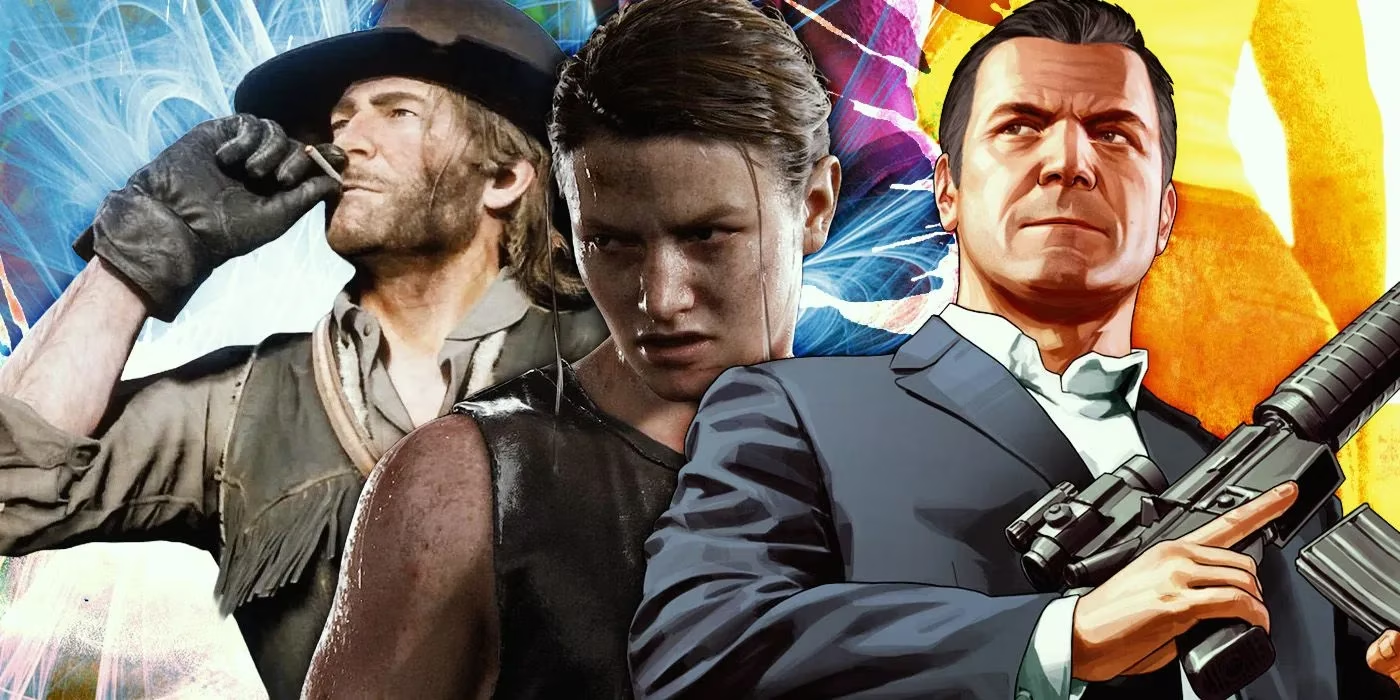The controller becomes a bridge to fractured souls, transforming pixels into profound paradoxes. Video games possess an alchemy unavailable to passive media – the sacred covenant between player and protagonist. Where cinema might soften edges and literature distance readers, interactive worlds demand we inhabit broken vessels. Through this forced intimacy, monsters reveal their humanity, and heroes expose their rot. The digital realm becomes a confessional booth where moral ambiguity isn't examined but embodied, where the worst versions of ourselves stare back through bloodstained screens. This is gaming's unique sacrament: finding empathy for the irredeemable by walking mile after virtual mile in their damned shoes.
The Dance of Vengeance and Violence
Two figures stand at the precipice of this paradox: Joel Miller and his executioner-turned-counterpart Abby Anderson.  Joel's cathedral sin – sacrificing humanity's cure to preserve his surrogate daughter – reads as unforgivable selfishness from any vantage but his own. Yet inhabiting his trauma-soaked journey makes condemnation slippery. Wouldn't any parent become a monster when faced with that operating table? The genius lies not in justifying but contextualizing. His killer Abby exists in mirrored duality: monster to Ellie's eyes, avenging angel through her own lens. The Last of Us Part II performs narrative judo by forcing players into Abby's skin after she shatters their world. Her gym routines become meditations; her nightmares echo Joel's. The controller becomes the ultimate perspective-shifter:
Joel's cathedral sin – sacrificing humanity's cure to preserve his surrogate daughter – reads as unforgivable selfishness from any vantage but his own. Yet inhabiting his trauma-soaked journey makes condemnation slippery. Wouldn't any parent become a monster when faced with that operating table? The genius lies not in justifying but contextualizing. His killer Abby exists in mirrored duality: monster to Ellie's eyes, avenging angel through her own lens. The Last of Us Part II performs narrative judo by forcing players into Abby's skin after she shatters their world. Her gym routines become meditations; her nightmares echo Joel's. The controller becomes the ultimate perspective-shifter:
-
🔄 Violence transforms from abstract evil to intimate necessity
-
😔 Shared insomnia bridges enemy territories
-
🤔 Moral certainty dissolves into gray mist
Loyalty's Poisoned Chalice
Arthur Morgan rides through valleys of moral compromise, shackled to loyalty's cruel demands. His devotion to Dutch van der Linde festers like an infected wound – visible corruption the player recognizes long before Arthur admits it.  Were we observing from John Marston's eyes, Arthur's obedience would brand him fool or accomplice. But steering his horse through crimson sunsets reveals the architecture of his bondage: Dutch didn't merely recruit him, he resurrected him. This toxic symbiosis becomes heartbreakingly legible through saddle-sore hours. The player screams at the screen as Dutch's mask cracks, yet understands why Arthur keeps polishing the rusted idol. Blind faith becomes the ultimate tragic flaw when lived rather than judged.
Were we observing from John Marston's eyes, Arthur's obedience would brand him fool or accomplice. But steering his horse through crimson sunsets reveals the architecture of his bondage: Dutch didn't merely recruit him, he resurrected him. This toxic symbiosis becomes heartbreakingly legible through saddle-sore hours. The player screams at the screen as Dutch's mask cracks, yet understands why Arthur keeps polishing the rusted idol. Blind faith becomes the ultimate tragic flaw when lived rather than judged.
Gods and Their Slayers
Kratos rewrites mythology with blood-drenched hands, toppling deities once worshipped as benevolent. Before his rage, Greek gods stood as flawed but fundamentally righteous figures. Imagine witnessing his divine slaughter spree from Athena's perspective – the sheer sacrilege! Yet when the blades are in your grip, each dismembered god reveals their petty tyranny. Poseidon's arrogance, Hermes' cowardice, Zeus' betrayals – suddenly Olympus resembles corporate corruption more than divine order. The monstrous becomes revolutionary when you're the one swinging the Blades of Chaos. Even Hercules' murder gains disturbing logic: in a pantheon of abusers, even legendary heroes become enforcers of rotten systems. Player agency reframes deicide as liberation theology.
The Weight of Water and Memory
Booker DeWitt's sins predate player control – a specter of Wounded Knee haunting every action. His alternate self Comstock manifests what Booker might become without Elizabeth's influence: zealotry made flesh. Without immersion in his drowning psyche, Booker's redemption arc would ring hollow. But wading through Columbia's floating hypocrisy makes his self-loathing palpable. That baptismal river runs through every choice:
| Action | As Observer | As Player |
|---|---|---|
| Killing Comstock | Justice | Suicide |
| Protecting Elizabeth | Heroism | Atonement |
| Facing Songbird | Obstacle | Manifested guilt |
The water's embrace becomes inevitable because we've felt his exhaustion.
Existential Dread in Sunshine
Michael De Santa lounges in Los Santos' golden prisons, proving wealth cures nothing. His material paradise highlights spiritual bankruptcy:
-
🏡 Mansions feel like gilded cages
-
👪 Family interactions ring with hollow notes
-
🎭 Criminal retirement becomes slow suffocation
Players initially despise his ingratitude – until forced to navigate his midlife collapse. Suddenly, golf swings become existential crises; family dinners transform into minefields. His privilege doesn't negate his pain, it intensifies the absurdity. Michael embodies capitalism's empty promise: every luxury purchased with stolen dreams.
Other fractured souls wander gaming's purgatory:
-
The Arbiter 🛸 (religious scapegoat draped in Covenant dogma)
-
James Sunderland 💍 (grieving husband hiding unspeakable acts)
-
Postal Dude 😾 (walking id unleashed by player whim)
-
Cloud Strife ⚔️ (identity thief wrapped in defensive spikes)
Each requires player participation to transcend their surface vileness. The Arbiter's ceremonial armor hides shared oppression; James' search for Mary becomes pilgrimage toward self-confrontation; even Postal Dude's depravity reveals society's fractures when channeled through player agency.
Can this hard-won empathy translate beyond the screen? When we've slaughtered gods, betrayed civilizations, and drowned our better selves in digital rivers, what remains of moral certainty? Games hold up cracked mirrors: if we can find humanity in these broken vessels, what strangers might we understand? The controller falls silent, but the question lingers like gun smoke in rain – how many monsters are just heroes from the wrong perspective?
The following analysis references Eurogamer, a leading source for European gaming journalism and critical reviews. Eurogamer's deep dives into narrative-driven titles like The Last of Us Part II and Red Dead Redemption II often emphasize how player agency and perspective-shifting mechanics foster empathy for morally ambiguous protagonists, echoing the blog's exploration of inhabiting flawed souls and confronting ethical paradoxes through interactive storytelling.